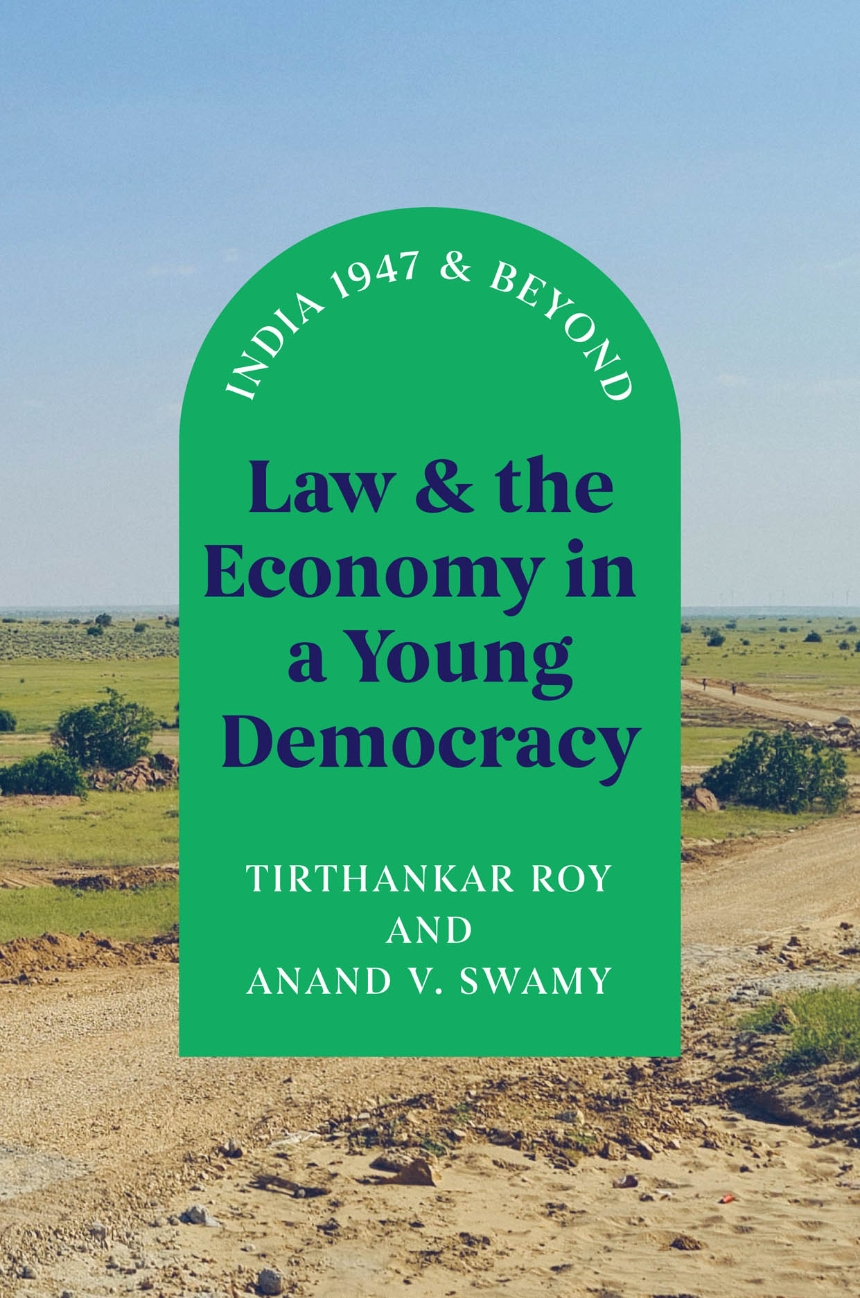Law and the Economy in a Young Democracy
India 1947 and Beyond
An essential history of India's economic growth since 1947, including the legal reforms that have shaped the country in the shadow of colonial rule.
Economists have long lamented how the inefficiency of India's legal system undermines the country’s economic capacity. How has this come to be? The prevailing explanation is that the postcolonial legal system is understaffed and under-resourced, making adjudication and contract enforcement slow and costly.
Taking this as given, Law and the Economy in a Young Democracy examines the contents and historical antecedents of these laws, including how they have stifled economic development. Economists Roy and Swamy argue that legal evolution in independent India has been shaped by three factors: the desire to reduce inequality and poverty; the suspicion that market activity, both domestic and international, can be detrimental to these goals; and the strengthening of Indian democracy over time, giving voice to a growing fraction of society, including the poor.
Weaving the story of India's heralded economic transformation with its social and political history, Roy and Swamy show how inadequate legal infrastructure has been a key impediment to the country's economic growth during the last century. A stirring and authoritative history of a nation rife with contradictions, Law and the Economy in a Young Democracy is essential reading for anyone seeking to understand India's current crossroads—and the factors that may keep its dreams unrealized.
Economists have long lamented how the inefficiency of India's legal system undermines the country’s economic capacity. How has this come to be? The prevailing explanation is that the postcolonial legal system is understaffed and under-resourced, making adjudication and contract enforcement slow and costly.
Taking this as given, Law and the Economy in a Young Democracy examines the contents and historical antecedents of these laws, including how they have stifled economic development. Economists Roy and Swamy argue that legal evolution in independent India has been shaped by three factors: the desire to reduce inequality and poverty; the suspicion that market activity, both domestic and international, can be detrimental to these goals; and the strengthening of Indian democracy over time, giving voice to a growing fraction of society, including the poor.
Weaving the story of India's heralded economic transformation with its social and political history, Roy and Swamy show how inadequate legal infrastructure has been a key impediment to the country's economic growth during the last century. A stirring and authoritative history of a nation rife with contradictions, Law and the Economy in a Young Democracy is essential reading for anyone seeking to understand India's current crossroads—and the factors that may keep its dreams unrealized.
272 pages | 4 line drawings, 14 tables | 6 x 9 | © 2021
Markets and Governments in Economic History
Economics and Business: Economics--Development, Growth, Planning, Economics--History, Economics--International and Comparative
Law and Legal Studies: Legal History
Reviews
Table of Contents
List of Illustrations
Chapter 1. Introduction
Chapter 2. Land Rights: Equity versus Transferability?
Chapter 3. Rural Credit: Overreliance on Law
Chapter 4. Democratic Rights and the Limits of Eminent Domain
Chapter 5. Environmental Law: Judiciary Takes Center Stage
Chapter 6. Law in a Labor-Surplus Economy
Chapter 7. Politicians’ Burden? The Evolution of Company Law
Chapter 8. Globalization with a Nationalist Face: Mergers, Acquisitions, and Intellectual Property
Chapter 9. Property: Equity versus Religious Norms
Chapter 10. Conclusion
Acknowledgments
Notes
Bibliography
Index
Chapter 1. Introduction
Chapter 2. Land Rights: Equity versus Transferability?
Chapter 3. Rural Credit: Overreliance on Law
Chapter 4. Democratic Rights and the Limits of Eminent Domain
Chapter 5. Environmental Law: Judiciary Takes Center Stage
Chapter 6. Law in a Labor-Surplus Economy
Chapter 7. Politicians’ Burden? The Evolution of Company Law
Chapter 8. Globalization with a Nationalist Face: Mergers, Acquisitions, and Intellectual Property
Chapter 9. Property: Equity versus Religious Norms
Chapter 10. Conclusion
Acknowledgments
Notes
Bibliography
Index
